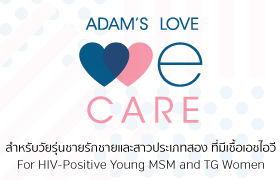|
|
ChlamydiaChlamydia infection is a common sexually transmitted infection (STI) in humans caused by the bacterium Chlamydia trachomatis. The term Chlamydia infection can also refer to infection caused by any species belonging to the bacterial family Chlamydiaceae. Watch Dr. Amanda explaining about Chlamydia's cause and symptoms. For those who have the symptoms which are non-specific, should seek proper diagnosis before getting treatment.
Chlamydia is a sexually transmitted infection. It is one of the most common sexually transmitted infections in the UK. If left untreated, the infection can cause infertility in women, and can increase the likelihood of passing on HIV. Although anybody who is sexually active can get chlamydia, the infection is more common in some groups, most notably young women or gay men.
Transmission
Chlamydia is caused by bacteria called Chlamydia trachomatis. It can be transmitted during anal, oral and vaginal sex if no condom is used (unprotected sex), and can affect the anus, penis, cervix, throat and eyes.
Untreated chlamydia may make a person with HIV more infectious because untreated sexually transmitted infections can increase viral load in genital fluids.
Having chlamydia can also make it more likely that an HIV-negative person will be infected with HIV if they are exposed to the virus.
Chlamydia can also be passed on from mother to child during childbirth and can affect the baby’s eyes, and cause pneumonia.
Prevention
Using a condom for anal, oral or vaginal sex is an effective way of avoiding infection with chlamydia or passing the infection on to somebody else.
People who are sexually active are advised to have regular sexual health check-ups, where they will be tested for chlamydia and other sexually transmitted infections.
Most HIV treatment centres have an associated sexual health clinic, where confidential and free treatment can be obtained without referral from your GP or HIV doctor.
Symptoms
Symptoms of chlamydia normally occur one to three weeks after infection. However, many people who have chlamydia are unaware that they have the infection. It is thought that as many as 75% of women with chlamydia, and 50% of men with chlamydia have no symptoms.
When symptoms do occur, in men it usually consists of a milky discharge from the penis, particularly in the morning, and a burning sensation when urinating. Chlamydia can also cause the testicles to swell. If a person has been infected anally, there may be soreness around the anus and a discharge.
Women with chlamydia may notice a milky discharge from the vagina and/or lower abdominal or back pain, or pain when having sex. There may also be vaginal bleeding during sex and bleeding between periods.
If chlamydia is left untreated it can lead to pelvic inflammatory disease (PID) in women, which can cause ectopic pregnancy (pregnancy outside the womb), infertility, and even death in very extreme cases.
Men are less likely to develop serious complications, though untreated chlamydia may cause infertility. Both men and women may develop arthritis as a consequence of untreated chlamydia.
Diagnosis
A general sexual health check-up at a genitourinary medicine (GUM) or sexual health clinic will include a test for chlamydia.
GUM clinics offer free, confidential and open access treatment. You don't had to be referred by your GP. Some HIV clinics also offer sexual health screening. Chlamydia is usually diagnosed by checking a urine sample, and if chlamydia is suspected in the throat and anus, swabs may be taken to see if the infection is present there.
Chlamydia is often the cause of non-specific urethritis (NSU), the symptoms of which are very similar, and which is diagnosed and treated in the same way.
It can take up to a week for tests to show if chlamydia is present and it is important to contact your clinic for the result of your test so treatment can be given if the infection has been detected.
Treatment
Chlamydia is treated with antibiotics. Normally this consists of a seven-day course of doxycycline, or a single dose of azithromycin. It is important to take all your tablets to ensure that the infection is eradicated from your body. You may still have symptoms for a few days after taking azithromycin as the antibiotic takes time to work.
When chlamydia is diagnosed you may be given the opportunity to see a health adviser. Health advisers can give you information about safer sex and how to protect your own and other people’s sexual health. They may also ask you to help them, where possible or practicable, to contact your sexual partners so they can be tested and treated too. In turn, this is intended to prevent you from becoming reinfected through continuing to have sex with someone who is themself infected.
You may be asked to return a week later for a test to see that you have been cured. To prevent reinfecton, you should not have unprotected sex (sex without a condom) until your treatment is finished.
Source: http://www.aidsmap.com/Chlamydia/page/1044825/ |

















